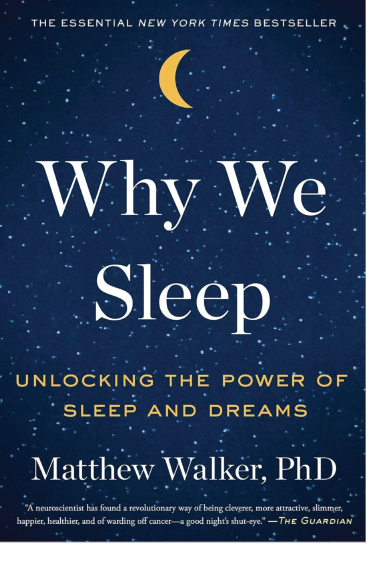
APA Aeromedical: A Force-Multiplier
This is the first half of a two-part series discussing Aeromedical. Please read next week’s installment for information about Project Wingman, SGRP, and CIRP.
As pilots, we’ve all been taught the IMSAFE checklist: Illness, Medication, Stress, Alcohol, Fatigue, and Eating/Emotion. It’s burned into our brains at an early stage in our flying careers, and we’re expected to adhere to it like it is gospel. But that can get tricky. Sometimes. our symptoms are subtle. Sometimes. it’s something we’ve never seen before. And sometimes. it’s something that just requires a peer’s help. But that’s okay. When it comes to applying the IMSAFE checklist, the APA Aeromedical Committee is there to support the pilots of American Airlines.
“The APA Aeromedical Committee is a vast resource,” Aeromedical Committee Chair FO Rondeau Flynn said. “For a career that could span three or four decades, a pilot will likely interact with us at least once. We are ready and waiting for that call. We want to give our pilots the support and resources they need to get back to flying the line.”
The Aeromedical Committee is comprised of six subcommittees that address different health and medical issues. “Each of our subcommittees and our national committee has members that are subject matter experts,” said FO Flynn. “But they’re also cross-trained, so someone who is on the Pilot Occupational Health Subcommittee may also be trained on the Critical Incident Response Program, and vice versa. It acts as a force-multiplier to support our membership.”
We all share the same desire to take care of our health.
The training received by each committee is extensive, and they do their best to provide for whatever scenario a pilot may come upon, to include support for addiction. “HIMS stands for Human Interventional Motivational Study. Basically, it’s pilots with an addiction. Back in the early 1970s, if you had an addiction, your flying career was over,” said FO Flynn. “But then HIMS came around. Other airlines have told us that APA’s HIMS program is the gold standard for similar programs in the aviation sector. Our volunteers in the HIMS program are so dedicated. They are more than willing to go above and beyond the call of duty to take care of their fellow pilots. These volunteers are helping entire families, not just pilots.”
Smoke and fumes, space weather and radiation can conspire against a pilot’s long-term health, which is where the POH Subcommittee comes in. “The Pilot Occupational Health Subcommittee acts as our technical research arm of Aeromedical. They work on technical aspects and policymaking for protecting our pilots’ health from events that happen in the workspace,” said FO Flynn. “It started with space weather and radiation. We’ve branched into working on fume events and nutritional science. We’re also working with U.S. government agencies to support our membership on education and developing policy to protect our members from these occupational threats. We’ve been fortunate to have NASA come to us to work together in partnership, and have accepted invites from the FAA, NOAA SWPC (Space Weather Prediction Center), and ACSWA (American Commercial Space Weather Association) to speak at conferences and promote mitigation strategies for pilot health. As pilots, we’re always thinking about redundancy systems, and we can do the same thing for health.”
 As for educating pilots on their health, FO Flynn has launched a recommended reading list for pilots. “The pandemic brought a lot of questions to the forefront. So, I introduced the monthly book recommendation. It comes out on the first or second Friday of every month. We get a lot of feedback on these books. The best feedback we had was on a book titled Why We Sleep by Matthew Walker. He’s the lead consultant on most of the sleep trackers out there. Sleeping properly is the number one human performance item we can do. But really, the reading list is based on improving your health and all things Aeromedical.” For more information about recommended reads, look on the Aeromedical Committee page on AlliedPilots.org, under “Recommended Reading.” FO Flynn personally screens each book, and they all contain excellent information.
As for educating pilots on their health, FO Flynn has launched a recommended reading list for pilots. “The pandemic brought a lot of questions to the forefront. So, I introduced the monthly book recommendation. It comes out on the first or second Friday of every month. We get a lot of feedback on these books. The best feedback we had was on a book titled Why We Sleep by Matthew Walker. He’s the lead consultant on most of the sleep trackers out there. Sleeping properly is the number one human performance item we can do. But really, the reading list is based on improving your health and all things Aeromedical.” For more information about recommended reads, look on the Aeromedical Committee page on AlliedPilots.org, under “Recommended Reading.” FO Flynn personally screens each book, and they all contain excellent information.
Aeromedical also supports pilots who have an unexpected health event or an accident resulting in injury. “The Disabled Pilots Awareness Subcommittee (DPASC) specializes not only in administrative care, but has very dedicated volunteers who work with our pilots on Long Term Disability. The volunteers on DPASC go through training so they can understand complex Long Term Disability issues. They, along with APA’s LTD Coordinator Tamara Elery, can provide assistance with any pilot’s question. DPASC volunteers and Tamara are often the bridge for LTD pilots to stay connected to both APA and their fellow pilots.”
Ultimately, Flynn said, “Aeromedical is OUR committee, all of us. We all share the same desire to take care of our health, and not receive any injuries at work. We want to make sure pilots can be well supported in their life journey. Our Aeromedical Committee is focused on your health and well-being. We are here for you when you need us.”